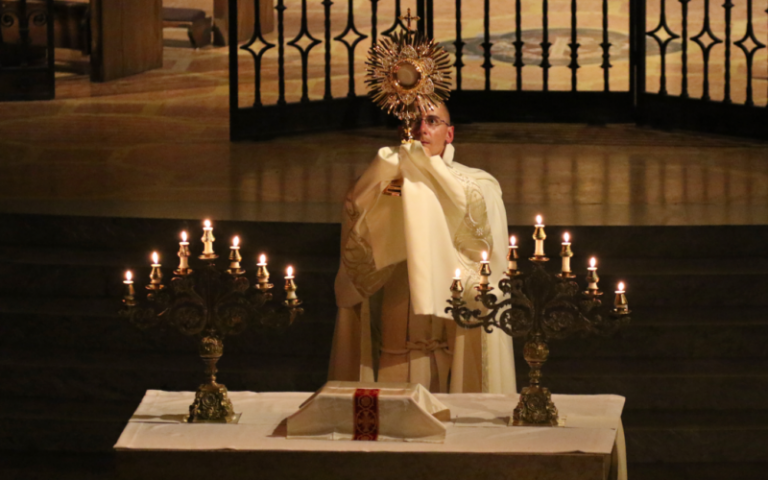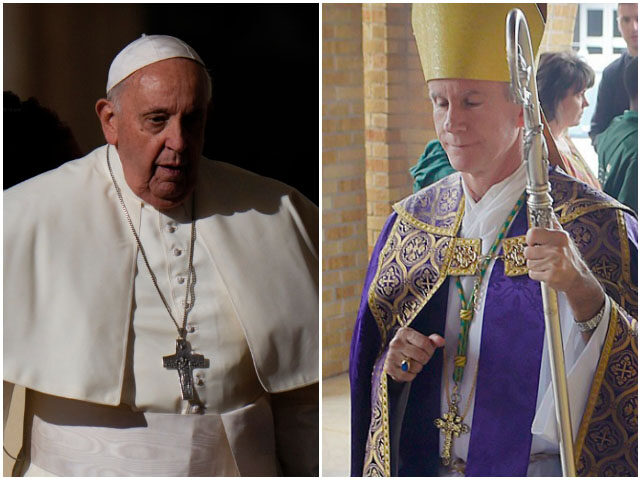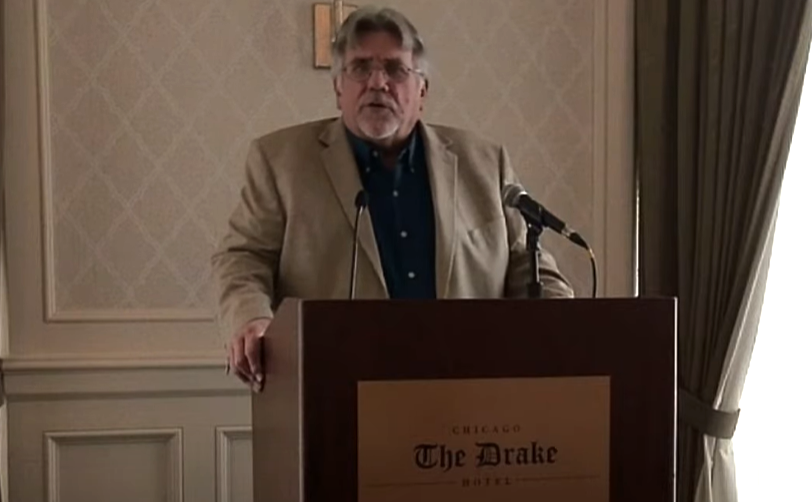Of what use is Adoration?
To the modern mind, Adoration does not seem particularly useful, unless it is understood as some form of mindfulness. It comes as no surprise that the world might value the charitable deeds of missionaries, such as St Teresa of Calcutta, but not put much stock in Carthusian monks praying and contemplating.
Cloistered monks seem to be doing nothing useful, whereas Mother Teresa clearly did many useful and good things. Many in the Church might agree. In the choice between Martha and Mary – between Martha who was busy serving, and Mary who sat at Christ’s feet – we are tempted to side with Martha, and puzzled by Jesus’s endorsement of Mary.
Prioritising activity over contemplation has a name: activism. Charity workers could be fooled into thinking their works are all important, but that prayer is for others. Pope Francis decried this attitude, and said that it reduced Catholic charities to NGOs. An exaggerated devotion to social justice often belies a neglect of personal sanctification and morals. Without prayer we are not open to the Father’s love, and without divine love our charitable deeds are wrought in vain.
Mother Teresa understood this clearly: all her charitable deeds flowed from and were grounded upon the Adoration of Jesus in the Blessed Sacrament. It is only by adoring Christ first that her sisters are able to recognise and serve Him in the poorest and most marginalised.
What does one do during Adoration? What do lovers do when they gaze with love at each other? We need silence first of all. When Pope Benedict XVI led Adoration in Hyde Park, about 80,000 young people kept silence with the Pope – to the consternation of media broadcasters. Silence apparently does not make for good television. Television requires continuous chatter. Adoration requires silence.
Secondly, Adoration requires attentiveness. It is heart-breaking to see couples sitting opposite each other in restaurants, both gazing avidly at their smartphone screens instead of each other. It doesn’t take much to see who or what dominates that relationship. We attend to that which we prize foremost. In Adoration we attend to the Lord.
And thirdly, Adoration needs receptivity. In our silence and attentiveness, we receive from God. We are stripped of the illusion that we can do God any favours. He longs to lavish Himself on us. Sitit sitiri, He thirsts to be thirsted for; He longs to be longed for. He will guide us and teach us, but only if we let Him. In Adoration we receive from God the truth about God and about ourselves.

Liverpool will host a National Eucharistic Congress next year
The film Into Great Silence (2005) offers a rare glimpse into the life of a Carthusian monastery. Every so often the camera lingers over the faces of the monks, one by one, and in each of them we see a great serenity. We see the contentedness of a creature happy in his dependant, finite nature and happier still with the love of God shining in his eyes. It is a life of contemplation, of Adoration, which creates such freedom in a creature.
JRR Tolkien once said he did not return to fidelity to the Lord by being chased by Francis Thompson’s Hound of Heaven, but through hunger for the Blessed Sacrament, as one starving for love. In a letter to his middle son during World War II (the context of the letter is marriage and sex), he wrote:
Out of the darkness of my life, so much frustrated, I put before you the one great thing to love on earth: the Blessed Sacrament. . . . There you will find romance, glory, honour, fidelity, and the true way of all your loves on earth… by the taste of which alone can what you seek in your earthly relationships… take on that complexion of reality, of eternal endurance, which every man’s heart desires.
Here in Medjugorje, where I am chaplain to the English-speaking pilgrims, we have Adoration every day in the chapel, and public veneration of the Blessed Sacrament in the evening four days a week. It is one of the great signs of Medjugorje: between seven and ten thousand people, kneeling in silence, adoring the Lord. Here many laity and priests learn to love Adoration. They taste and see the goodness of the Lord. Adoration is the heart of Medjugorje, because Jesus is the heart of this parish, as He must be in every parish.
Adoration is the heart of Medjugorje, I said. In my own experience it is powerful. Jesus waits for us with eager longing. And He longs to lavish Himself on us. It’s like a tower made of champagne glasses, and when the top glass is filled it overflows and fills the glasses below. In Adoration, when we are open to receive, God enlarges our hearts to love, and that love overflows to others, just like the champagne tower.
Sometimes people experience little change, often because of unconfessed sin or hiding ourselves from the Lord. If we are closed, if we keep our hurts and everything about us hidden from the Lord, then very little can change. Then Adoration will be experienced as a burden to be endured or avoided. But when we are open to the Lord, it is very powerful. God has so many graces He wants to give us, and He leads and guides us in prayer through Adoration. Sometimes we keep vigil with the Lord during Adoration, and make acts of reparation and love – because the world needs this so much.
In Lourdes, most miracles take place during the Adoration of the Blessed Sacrament. Medjugorje is no different. Although so much power and grace radiate from the Blessed Sacrament during heartfelt and worthy Adoration, in the end this is not about getting “something”.
The Curé d’Ars referred to a parishioner who said that during Adoration, “I look at Him. And He looks at me.” It is about two people in love with each other – a creature and its God. The deeper our hunger, the more He gives us; indeed, He gives us this hunger for Him. Get to church, and let Heaven fall on you…
Fr Leon Pereira OP is chaplain to the English-speaking pilgrims in Medjugorje, Bosnia & Herzegovina
In September 2018, the bishops of England and Wales will hold a National Eucharistic Pilgrimage and Congress in Liverpool. Named Adoremus, this event aims to reinvigorate both the practice of Eucharistic adoration and the conversation around Christ’s presence in the Blessed Sacrament. Learn more here








